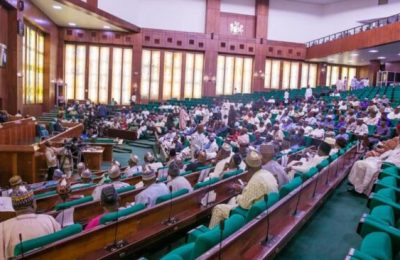
ACCORDING to United Nations (UN), young people constitute up to one-fifth of the global population. This is why scholars believe that involving young people in politics leads to a civic engagement that goes beyond political commitment, as it can involve serving the community through participation in health, education and charitable work. Young people are a dynamic source of innovations. As Brit Anlar of the State University of New Jersey, Charles McClean of Harvard University And Aksel Sundstrom of the University of Gothenburg have pointed out, the relative absence of young people in both the electoral process and political institutions is worrying not only because of normative concerns about civic engagement, but also because young people have different preferences on a wide range of policies that disproportionately affect them, from those concerning education, unemployment, newer technologies, and childcare to longer-term issues such as climate change.
This ties in with the position of Melike Tekindal, who avers that youth participation is very important for modern societies as well. In any case, as Ransford Gyampo and Nana Anyidoho, citing different authorities, have argued in another context, African youth are a strong political force, yet political parties and governments in Africa often exclude young people from meaningful participation in governance systems but recruit them to fight dangerous political wars, often as “foot-soldiers” of political parties. Given the foregoing, it is not fortuitous that a fairly significant number of the ministerial nominees recently screened by the Senate are young people. The list includes Stella Okotete, 38, Hanatu Musawa, 43, Bunmi Tunji-Ojo, 41; Betta Edu, 36, and Joseph Terlumun Utsev 40. In delivering his Renewed Hope agenda, President Bola Tinubu is no doubt cognizant of the invaluable role of young, dynamic and patriotic ministers. The president recognizes the need for his cabinet to be fairly representative, and frowns at the tendency to exclude the youth from the highest positions of leadership and thus lose the input of a significant portion of the population.

The profiles of the young ministers-designate no doubt raises cause for cheer. They have robust achievements that belie their years and have proven to be distinguished personalities across a broad range of endeavours. For instance, Betta Edu, a former Commissioner for Health in Cross River State, holds a postgraduate diploma and masters degree in Public Health from the London School of Hygiene and Tropical Medicine, and a doctorate from the Texilla American University. She was in fact the national chairman of the Nigeria Health Commissioners Forum, and won the Medical Expert of the Year award in 2020. In the same vein, Olubunmi Tunji-Ojo, the member currently representing Akoko North East/Akoko North West Federal Constituency of Ondo State at the Green Chamber, is a distinguished personality. Educated at the University of North London (now london metropolitan university) where he obtained first and second degrees in electronics and communication engineering and Digital Communication and networking, respectively, Tunji-Ojo holds certifications in 18 professional qualifications in ICT, including the prestigious title of being one of the first set of certified ethical hackers from Royal Britannia IT Training Academy in the United Kingdom before turning 24.
As a lawmaker, Tunji-Ojo donated motorbikes and vehicles to facilitate the work of security agencies, including the Amotekun Corps and the Nigeria Police; gave ambulances and other working tools to various hospitals; procured buses for traditional rulers, completed ICT and skill acquisition centres at various secondary schools, donated transformers to various communities, and facilitated many road projects. This was in addition to donating educational materials to all public secondary schools in his constituency, facilitating the construction of modern classrooms in public schools, giving scholarships, paying the school fees of indigent students, distributing more than 1000 JAMB forms and enrolling hundreds of students in computer training. Among other honours, Tunji-Ojo is a recipient of the Sir Ahmadu Bello Platinum Leadership Award of Excellence and Kwame Nkrumah Leadership Award as a worthy ambassador of African youth. At the Niger Delta Development Commission (NDDC), Tunji-Ojo spearheaded a notable investigation into alleged malfeasance of over N80 bn in the commission, the first time such a probe had occurred in the NDDC’s over two-decade history.
However, neither Tunji-Ojo nor his colleagues will be judged by their academic/professional profile. Rather, they will be judged by their delivery of the mandates of their respective ministries in such as way as to facilitate the escape of millions of Nigerians from squalor. Currently, Nigerians are experiencing deep pains as a result of the removal of subsidy on PMS and floating of the naira, and it is important for the young ministers to demonstrate that their nomination by President Tinubu was the right decision. Doing so will, among other things, inspire hope in Nigerian youth and put the country on the path of recovery. They should work hard and make the country super proud of them.
- Salako is publisher, Triangle News Media







